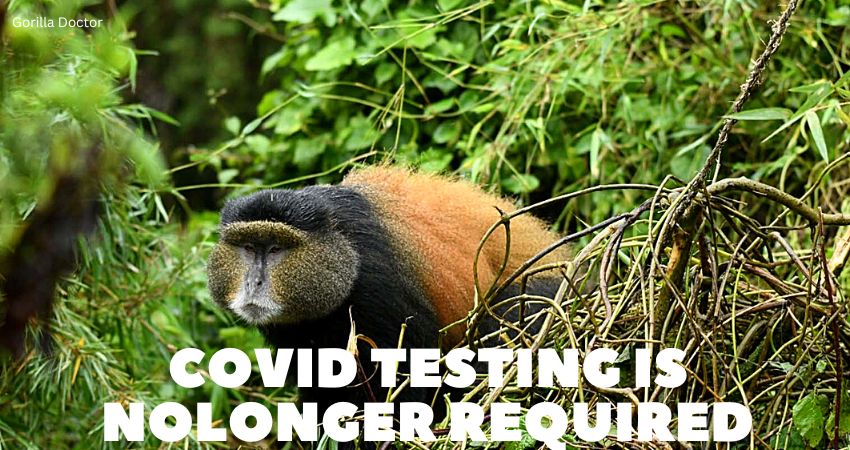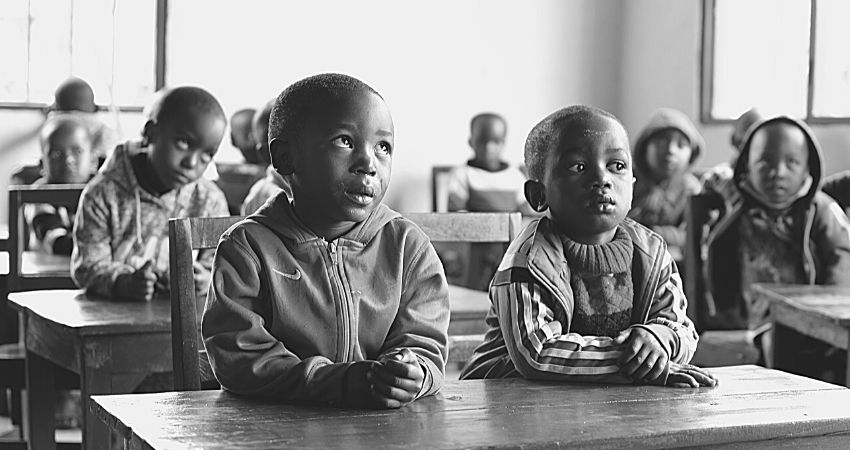
Negative COVID-19 Test is No Longer Required to Visit Rwanda Parks
A negative COVID-19 test is no longer required in visiting all National parks in Rwanda. In a recent announcement, Rwanda Development Board announced the suspension and removal of this mandatory testing that required guests to have negative PCR test results to track gorillas in Rwanda or track Chimpanzees in Nyungwe forest. BOOK NOW
I quote in a tweet from Rwanda Development Board.
“RDB would like to inform the public that all tourists, including children over 5 years, where applicable, visiting the country’s national parks are no longer required to present a negative COVID-19 test. A face mask will remain mandatory for those visiting primates.”
Guests visiting Akagera National Park will no longer have to take negative rapid antigen tests. This is no more, however, wearing a face mask at all times while in the park remains mandatory for all visitors especially those visiting the primates.
This is one of the best News, coming in at the right time for visitors to the land of a thousand hills (including children above 5 years, where applicable) because no one will have to be worried about failing to continue with a trip for not testing or testing positive for COVID-19. Since the re-opening of Rwanda’s tourism in August 2020 after the Coronavirus-related lockdown, a number of restrictions were placed on exploring the National Parks as a way of protecting the country’s biodiversity. These restrictions were slowly lifted, and the latest (which was deterring many travelers from achieving their dream of getting up close to the primates) was the suspension of negative covid-19 test results before embarking on your adventure.
The Majority of Coronavirus-related Travel restrictions in Rwanda (including the requirement to present a negative COVID-19 test) have been suspended, except for the mandatory wearing of Face Masks for visitors planning to undertake primate tracking. In Rwanda, primate tracking involves on-foot searching for specific habituated primate species in their natural habitats and these mainly include mountain gorilla trekking in Volcanoes National Park, Chimpanzee and Colobus monkey tracking in Nyungwe Forest and Gishwati-Mukura National Park, and Golden monkey tracking in Volcanoes National Park.
Rwanda, christened the “land of a thousand hills” is one of the few unmissable African safari destinations for a number of thrilling reasons. This treasure trove has four spectacular National Parks, each offering something unique from the other. For travelers looking to trek the endangered mountain gorillas in their natural habitats, Volcanoes National Park is the place to be. Here, over 35% of the World’s estimated 1080 mountain Gorillas live alongside Golden monkeys, leopards, spotted hyenas, bushbucks, giant forest hogs, and over 200 species of birds that include the Albertine Rift endemics.
Additionally, the majority of chimpanzee trekking safaris are undertaken in Nyungwe Forest National Park with over 500 of these Great Apes calling the protected Area home. There are generally over 80 mammal species here that include 13 primate species as well as over 320 bird species that include about 23 Albertine Rift endemics. Besides Chimp trekking, other ways to explore this safari destination is through guided forest walks, birding tours, and the canopy walk.
The only savannah National Park in Rwanda- Akagera National Park is where the big five game (leopards, elephants, lions, buffaloes, and Rhinos) are found alongside Masai giraffes, zebras, Kobs, impalas, warthogs, vervet monkeys, spotted hyenas, Topis, Defassa waterbucks, giant elands, and so much more.
The smallest and newest National Park in the country- Gishwati-Mukura is another wonderful place to see chimpanzees, golden monkeys, and lots of forest bird species.



